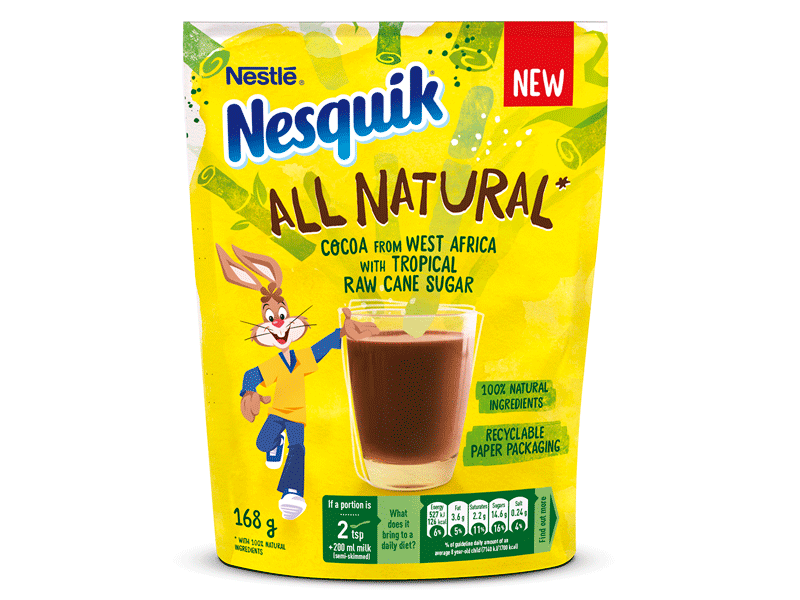
Nestlé has announced the launch of a new Nesquik All Natural powder in a recyclable paper pouch, and featuring a simplified ingredients list.
Nestlé will be launching the new Nesquik All Natural in five European markets in the coming weeks: France, Germany, Italy, Portugal and Spain. It will sit alongside the existing Nesquik range, and will be rolled out to other European countries in the near future.
According to the company, the new Nesquik All Natural features simplified a list of just five natural ingredients. It contains more cocoa and therefore a richer cocoa taste than existing Nesquik products. Nesquik All Natural also has less sugar than the current classic product, and uses raw cane sugar instead of processed white sugar. Nestlé says the cocoa is responsibly sourced from West Africa under the Nestlé Cocoa Plan.
Michelle Alvarillo, Head of Cocoa and Malt Beverages at Nestlé, said: “We’re proud to be able to launch Nesquik All Natural as a new addition to the range, providing parents with an all-natural option with a simplified ingredients list, more cocoa and less sugar in a recyclable paper packaging. This is part of our commitment at Nestlé to offer more natural, sustainable and nutritious choices while maintaining the great taste that people know and love.”
‘Moving from plastic to paper’
The new pouch is made of a coated paper that is recyclable in the paper stream. Nestlé has confirmed the paper is from sustainable sources, certified by the Forest Stewardship Council (FSC). According to the company, the pouches have been extensively tested to make sure they keep the Nesquik powder in perfect condition during transport and storage.
The launch of the new Nesquik comes less than two months after Nestlé’s commitment to accelerate action to tackle plastic waste.
Yasser Abdul Malak, Head of the Dairy category for Europe, Middle East and North Africa, added: “The recyclable paper pouch is the first of its kind, one of our key initiatives towards providing more sustainable packaging across our product portfolio. Moving from plastic to paper is a big challenge, but an important step in designing the food packaging of the future. We have taken that step today to ensure we truly meet consumers’ demand for more natural and sustainable food.”













